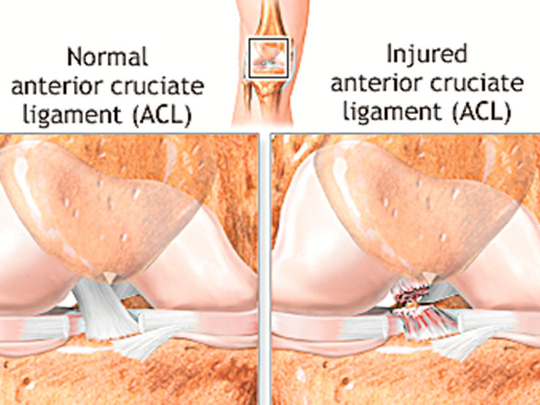
Dubai: Improper exercising is one of the leading causes of musculoskeletal problems.
Doctors say many patients who suffer from such problems do so as a result of taking up recreational sports without proper coaching.
Dr Ahmad Abaub, consultant orthopaedic and trauma surgeon at University Hospital Sharjah (UHS), said UHS treats a treats a large number of patients on a daily basis who suffer from musculoskeletal problems partly due to improper training.
“Although there are multiple factors which cause sports injuries, many patients take up recreational sports without proper coaching. The most common knee injuries are meniscal tear cartilage, and torn cruciate ligament.”
“The culture in the gym is often one which encourages you to go beyond your limits. Many gym users hold themselves to the motto ‘No Pain, No Gain’, Dr Abaub said, adding: “The problem is when people exert themselves to build their muscles in an unreasonably short period of time. Trainers should be selected to demonstrate proper exercises and techniques without overloading gym users.”
UHS receives approximately 20 patients a day related to sport injuries. “It is a major problem,” Dr Abaub commented.
The Orthopaedic Surgery Unit also receives a number of elderly patients suffering from knee problems. In this group of patients, cartilage wear is due to the weakening and wearing away of the cartilage over time.
Dr Abaub, who is a specialist in arthroscopic surgery of the knee and shoulder, said that many middle-aged patients see a doctor only at the ‘end stage’ of the problem, when the only recourse is to replace the worn-out knee with a prosthetic knee, a state-of-the-art artificial device.
Women in particular tend to neglect the problem for a long time, which prolongs the surgery time if surgical intervention is recommended. The prosthetic knee helps the ageing population lead a better quality of life.
The UHS Orthopaedic Surgery Unit also deals with many cases of hip fractures, the other common trauma in later life.
Preventive measures should be taken much earlier which include checking periodically for Vitamin D deficiency or thyroid problems. A regular assessment would also uncover any osteoporosis issues. Osteoporosis makes bones weak and more likely to break. Anyone can develop osteoporosis, but it is common in older women. Hips, wrist and spine are common sites for fractures.
The doctor pointed out that Vitamin D deficiency is a global problem, and is particularly rampant in this region because people tend to stay indoors away from the sun which is the natural source of Vitamin D that is essential for strong bones.
Vitamin D levels should be checked periodically every six months, starting when you are in your 20s. Middle-aged women in their 40s, in particular, should check for a vitamin deficiency regularly as they may enter perimenopause and find that their natural hormones are unable to protect them.
Obesity and overweight also has an impact on the proper functioning of knees. The doctor advised that the maintenance of a healthy weight is key to avoiding joint problems.












